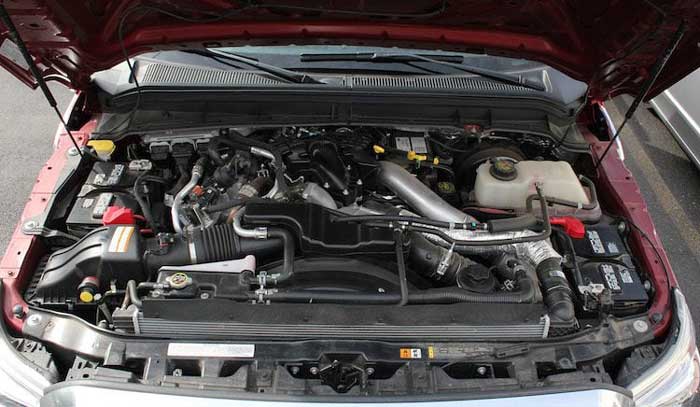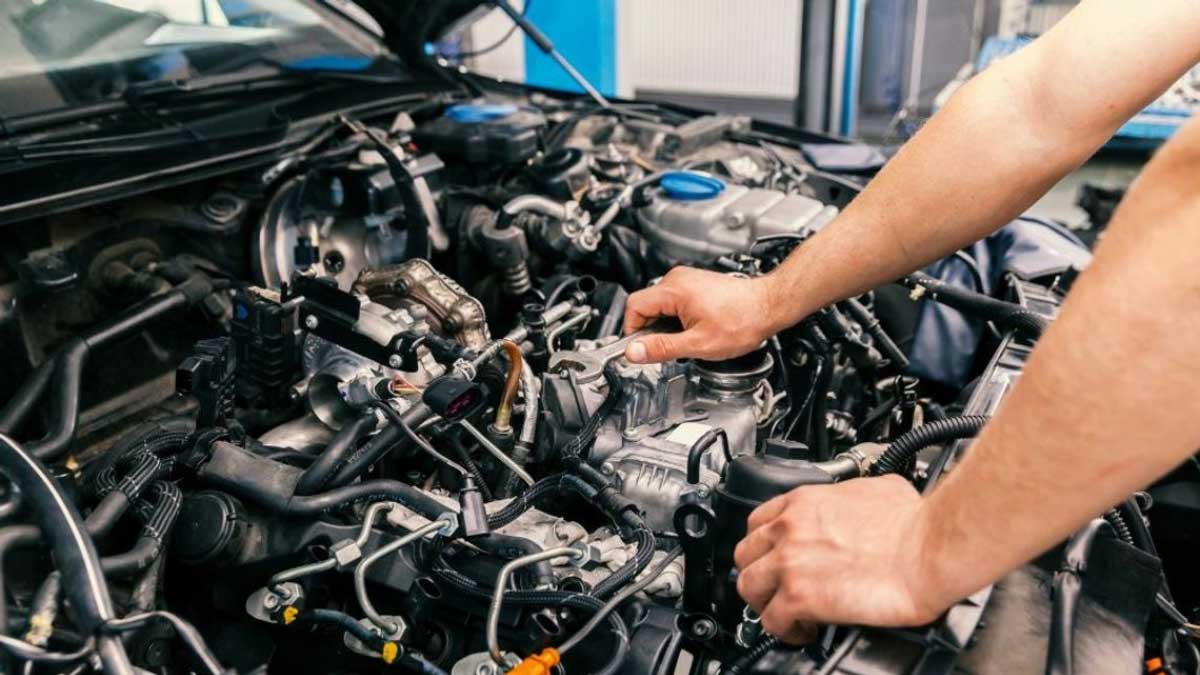Ever felt like your diesel engine car is playing a cruel game of hide and seek with its power? You’re cruising along, daydreaming about that perfect road trip playlist, and suddenly, your car decides it’s time for a power nap. Well, fear not, fellow drivers, for I’ve dived into the mysterious world of diesel engines to uncover why these power outages happen when we least expect them.
Key Reasons for Power Loss in Diesel Engines
When your diesel engine car decides to play hide-and-seek with its power, it can be as puzzling as trying to find a matching pair of socks in the laundry. Let’s jump into the potential culprits that might be sabotaging your acceleration joyride.

Fuel System Issues
Ah, fuel system problems, the mischievous troublemakers of the engine world. These sneaky issues could include clogged fuel filters acting like tiny traffic jams in your fuel lines, or fuel injectors throwing a tantrum and failing to deliver the proper fuel dosage. It’s like your car deciding to go on a diet and not consuming enough fuel.
Airflow Problems
Imagine your car as a big, grumpy bear trying to catch its breath. Airflow problems can leave your diesel engine feeling like it’s climbing Mount Everest with a stuffy nose. From dirty air filters suffocating your engine to faulty turbochargers acting like a lazy Monday morning – inadequate airflow can really cramp your car’s style.
Exhaust Flow Obstructions
It’s like your car’s version of indigestion – exhaust flow obstructions can make your engine feel bloated and unable to let out those gases. Issues such as a blocked DPF (diesel particulate filter) or a grumpy EGR (exhaust gas recirculation) valve can leave your car wheezing like it just ran a marathon without training.
So next time your diesel engine decides to be a party pooper by losing power when you need it the most, remember, it’s just looking for a little TLC in the fuel, airflow, or exhaust department. Keep these culprits in check, and your car will thank you with a smoother ride.
Common Mechanical Problems Leading to Reduced Acceleration
When it comes to our beloved diesel engine cars, sometimes they can act up like a grumpy old cat trying to chase a mouse. Let’s jump into a couple of mechanical quagmires that might be causing your vehicle to lose its pep.
Turbocharger Issues
Ever felt like your car could use an extra shot of espresso to get going? Well, your turbocharger might need a little pep talk too. When this fella decides to take a nap on the job, it’s like trying to run a marathon with a pair of lead shoes. Check the turbocharger for any signs of wear and tear, and make sure it’s not playing hide and seek somewhere in your engine compartment.
Engine and Sensor Malfunctions
Ah, the joys of modern technology! Our engines are now filled with more sensors than a space shuttle. But sometimes these little gizmos can throw a tantrum, causing your car to behave like a stubborn teenager. Keep an eye out for any engine warning lights flashing like a disco ball and listen for any unusual sounds coming from under the hood. It might just be one of those sensors acting up and hogging all the fun.
Maintenance Tips to Prevent Power Loss
Ah, the dreaded power loss in our diesel engine cars—it’s like hitting a road bump when you least expect it. To keep our engines purring happily, let’s jump into some maintenance tips that can steer us clear of these frustrating slowdowns.
Fuel System TLC
- Clear Filters, Happy Engine: Regularly check and replace clogged fuel filters to ensure a steady flow of clean fuel to the engine. It’s like giving your car a fresh cup of coffee to start the day right!
- Injector Love: Malfunctioning injectors can be a real buzzkill. Get them checked and serviced to keep your engine running smoothly. Think of it as a spa day for your car—everyone deserves a little pampering!
Airflow Check-Up
- Breathe Easy: Dirty air filters and faulty turbochargers can suffocate your engine’s performance. Clean or replace filters as needed to maintain optimal airflow. After all, who doesn’t love a deep breath of fresh air?
- Turbo Troubles: Keep an eye out for turbocharger issues like leaks or malfunctions. A healthy turbo means your car can sprint like Usain Bolt on the track!
Exhaust Flow Freedom
- DPF Detox: Blocked Diesel Particulate Filters (DPFs) can put a real damper on your acceleration. Schedule regular DPF cleanings to keep your exhaust system happy and your car zipping along.
- EGR Elegance: Malfunctioning Exhaust Gas Recirculation (EGR) valves can lead to sluggish performance. Ensure these valves are functioning correctly—it’s like yoga for your car, maintaining that perfect balance.
Early Detection Wins
Maintain a keen eye and ear for warning lights or unusual sounds emanating from your engine. Early detection of issues can save you from bigger headaches down the road. Remember, a happy car is a responsive car!
Conclusion
So there you have it, folks! Remember, when your diesel engine car decides to play hide-and-seek with its power, it’s not just for fun. From fuel system fiascos to airflow antics, there’s a whole circus of reasons behind this disappearing act. By giving your car some TLC with regular maintenance, you can keep the power struggles at bay. Don’t let those warning lights and strange sounds go unnoticed – they’re like your car’s way of saying, “Help, I’ve fallen and I can’t get up!” Stay vigilant, keep those components happy, and enjoy a smooth ride without the drama of power loss. Drive on, my friends!
Frequently Asked Questions
What are the common reasons behind sudden power loss in diesel engine cars?
The most common reasons for power loss in diesel engines are clogged fuel or air filters, issues with the turbocharger, dirty fuel injectors, fuel system problems, and airflow obstructions.
How can I prevent power loss in my diesel car?
To prevent power loss, maintain components like fuel filters, injectors, air filters, turbochargers, Diesel Particulate Filters (DPFs), and Exhaust Gas Recirculation (EGR) valves regularly. Keep an eye on warning lights and unusual sounds for early detection.
Why does a diesel engine feel sluggish?
A sluggish diesel engine is often caused by a dirty fuel system, including injectors, valves, and piston heads. Residue and deposits in the fuel system can limit fuel delivery, resulting in loss of compression and inefficient combustion.
What can cause a turbo diesel to lose power while driving?
Power loss in turbo diesel engines can be caused by dirt or debris entering the turbo, issues with tubing connections, or lack of proper oil maintenance for the turbocharger and oil filter.
Which sensor can lead to power loss in a diesel engine?
A faulty Mass Airflow Sensor (MAF) can cause power loss in a diesel engine by inaccurately measuring the amount of air entering the engine. Cleaning or replacing the MAF sensor can often resolve this issue.

